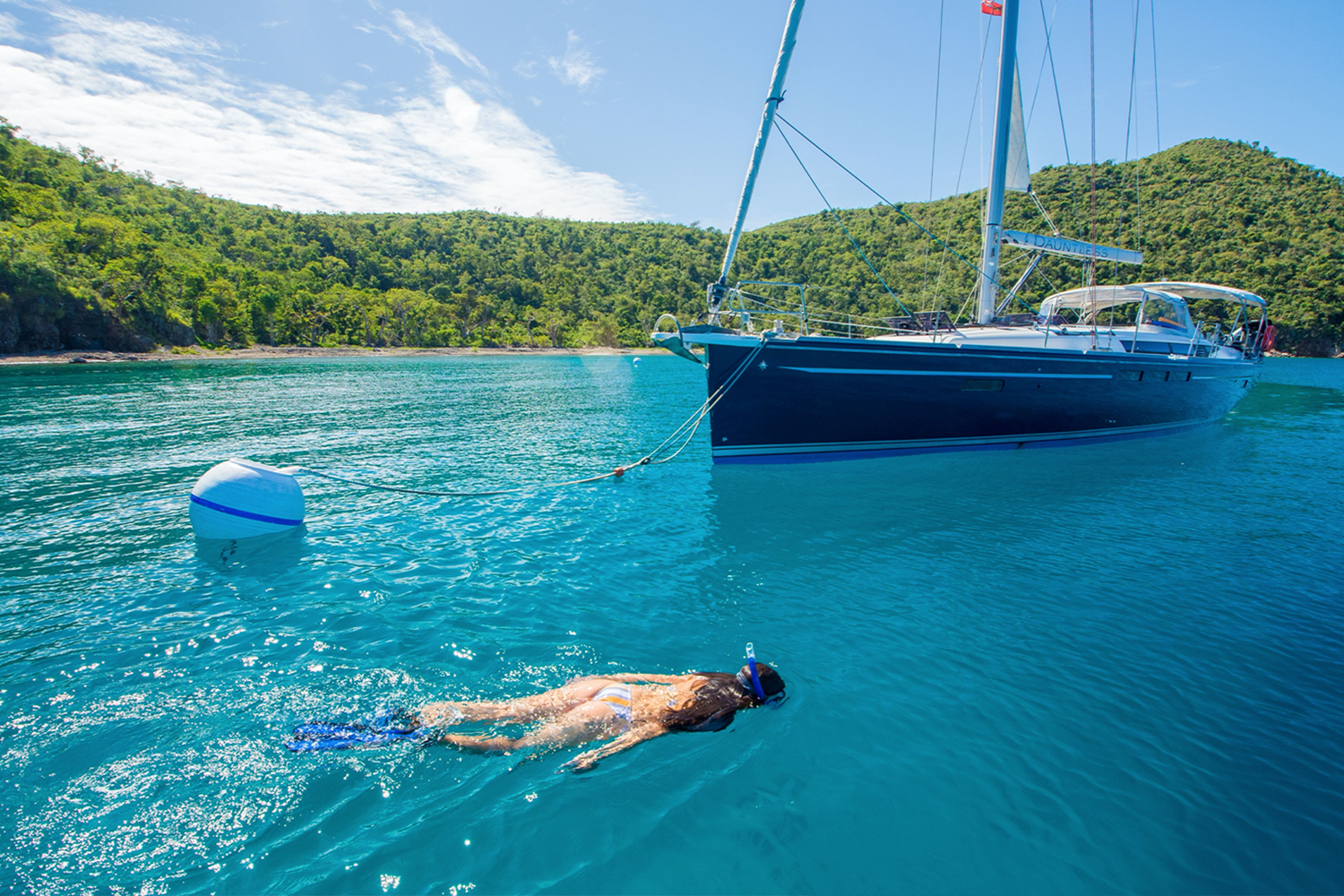When I was 21, I studied in London for what wound up being two transformative months of my young adult life. It was the first time I’d traveled alone for an extended period of time, allowing me to truly immerse myself in a culture distinct from my own. It was also, unbeknownst to me then, the last time I would do that.
There are certain realities of adulthood — careers, student loans, mortgages, kids, aging parents — that have historically made the possibility of settling down in a foreign country for any meaningful amount of time feel implausible at best. It’s not something you can necessarily fully appreciate as a college-aged kid, free from virtually all real-world responsibilities and under the false impression that the opportunities afforded by youth will always be there waiting for you.
That said, does it really need to be that way? Why shouldn’t travel geared toward language acquisition, personal growth and cultural exchange be a totally acceptable component of adult life?
Enter Sojrn, a study abroad program tailored to the generation of digital nomads that has only grown since the advent of the coronavirus pandemic. With four “chapters” slated for 2021 and several more planned for the 2022, Sojrn offers remote-working adults the opportunity to learn about mental health and wellness in Bali, wine in Tuscany, philosophy in Athens or Spanish in Colombia, all without any disruption to their work schedule.

“Sojrn is for anyone who’s ever said, ‘I wish I could go spend a month and do X. Like, ‘I wish I could go spend a month in Scotland learning about whiskey,’ or ‘I wish I could go spend a month in Greece learning to sail,’” Sojrn CEO Tara Cappel says. “Before the pandemic that meant having to take a month off of work, but now with so many working remotely, more people can do something like this without going totally offline.”
And she’s right. More than 70% of employed adults have spent the bulk of the pandemic working remotely, a statistic that lends itself nicely to the prospect of traveling for longer periods of time than what was once considered the norm.
“So many people, I think, have these daydreams about doing something like this and living a different version of their lives for a period of time, it’s just something that has been really difficult to execute,” she continues.
It is her vision that Sojrn be the vessel that brings those daydreams to fruition.
Cyrus David, 36, is the VP of product at a tech startup in New York. He is also a remote worker, and was among the first to sign up with Cappel.
“I’ve worked remotely abroad quite a few times, and that alone has been such a great experience,” David says. “But what makes Sojrn so appealing is the added dimension of getting plugged into the local community — which isn’t easy to do on your own — and exploring a new topic in a curated way. That trifecta of working remotely with other people from around the world, with local community immersion, and curated programming around a new topic, seems like a first in kind experience that I’d love to be part of.”
David plans to study in Bali next, citing mind and body wellness a major theme he’d like to explore over the course of the next year.

Cappel, who hails from Sun Valley, Idaho, is also the CEO of For The Love Of Travel — a modern group travel agency catered towards travelers between the ages of 25 and 39. She’s already intimately familiar with her target audience, and they with her (David heard about Sojrn from Cappel directly). To date, she’s received more than 300 signups for both the Italy and Bali chapters — many of them former FTLO travelers, a community that Cappel has helped cultivate.
“Sojrn has been enabled by shifts caused by the pandemic, but the origins of the idea really stem from an experience I had a decade ago when I was 20 and I left college to go Europe to learn languages in the country where they actually spoke that language,” Cappel says. “When I got to Rome, I met this really amazing ex-pat community of people from all over the world. They became like my family.”
“And then also studying Italian in Italy really made it fun and effective and helped me experience Rome in a way that I wouldn’t have been able to if I had just been passing through on a week trip,” she continues. “That’s the experience I’ve always wanted to give people. And now that remote work is so much more widely accepted, it enables a larger group of people to do just that.”
The decision to include Colombia, Greece, Bali and Italy in their program rollout was an easy one — they’re places Cappel has spent the past five years building relationships with through FTLO, and that tick all of the boxes in terms of health and safety in a 2021 post-pandemic world.
After deciding on a chapter, customers are set up with accommodations and access to a network of partner cafes and coworking spaces, which have been deemed “Sojrn spaces.” They are then connected with the other participants in their respective chapters through an online portal, where they’ll find a menu of activities and experiences meant to guide them through their studies.
“There’s one included activity per week with the group to help you get to know people, but then otherwise everything is self-directed, and you can pick and choose what most interests you and whatever is most convenient for you based on what your schedule looks like,” Cappel says.

Of course, there are still more obstacles and obligations to navigate as an adult than as a 21-year-old, making the concept of studying abroad feel a bit more daunting. But each chapter runs for just four weeks, and to make that time away even more feasible, Cappel has partnered with MyPlace — a company that aids travelers in renting out their homes to friends or family for the duration of their trip — to help offset the cost of the program. The cost of the chapters on their own are location dependent, but fall in the range of $2,500 to around $6,000 — less, in some cases, than one week at an all-inclusive in the Caribbean.
Austin native Petra Rupp, 36, an interior designer and artist, says she was taking anywhere between three to five international trips a year before the pandemic, but — like everyone else — has found herself grounded for the better part of the past year.
“I had a definite feeling of my wings being clipped during 2020,” she says. Because Rupp has been on several FTLO trips to date, she’s on their mailing list. Upon hearing about Sojrn, she signed up immediately.
“I’m recently engaged and planning to start a family in the next few years, so I love the idea of squeezing in a few more lengthy international stays in the meantime,” Rupp says. “Also, my business has shifted to a more remote format with clients all over the country so I’m not as location bound as I used to be when I first started out.”
As a seasoned travel consultant, Cappel believes that extended travel is the future, and even as people gradually begin heading back into the office, there will continue to be space for it.
“I’m not sure that everyone’s going to become a digital nomad, but I do think that remote months or extended vacations will become a standard employment perk similar to vacation time. There are going to be more hurdles to getting somewhere, so you actually want to spend more time there.”
“And when you extend your trip, and stay somewhere for four weeks, you stop focusing on the highlights and start noticing the details. That’s where the magic is,” she adds. “So I definitely think extended travel will become more of the norm. There will always be a place for the type of fun, adventurous trips that FTLO puts on, but I see Sojrn helping usher in this sort of new dawn of extended immersive, purposeful travel.”
In a few short weeks, Sojrn will be officially launching bookings for all four existing chapters, but in the meantime feel free to join me on the waitlist here.
For more travel news, tips and inspo, sign up for InsideHook's weekly travel newsletter, The Journey.





















